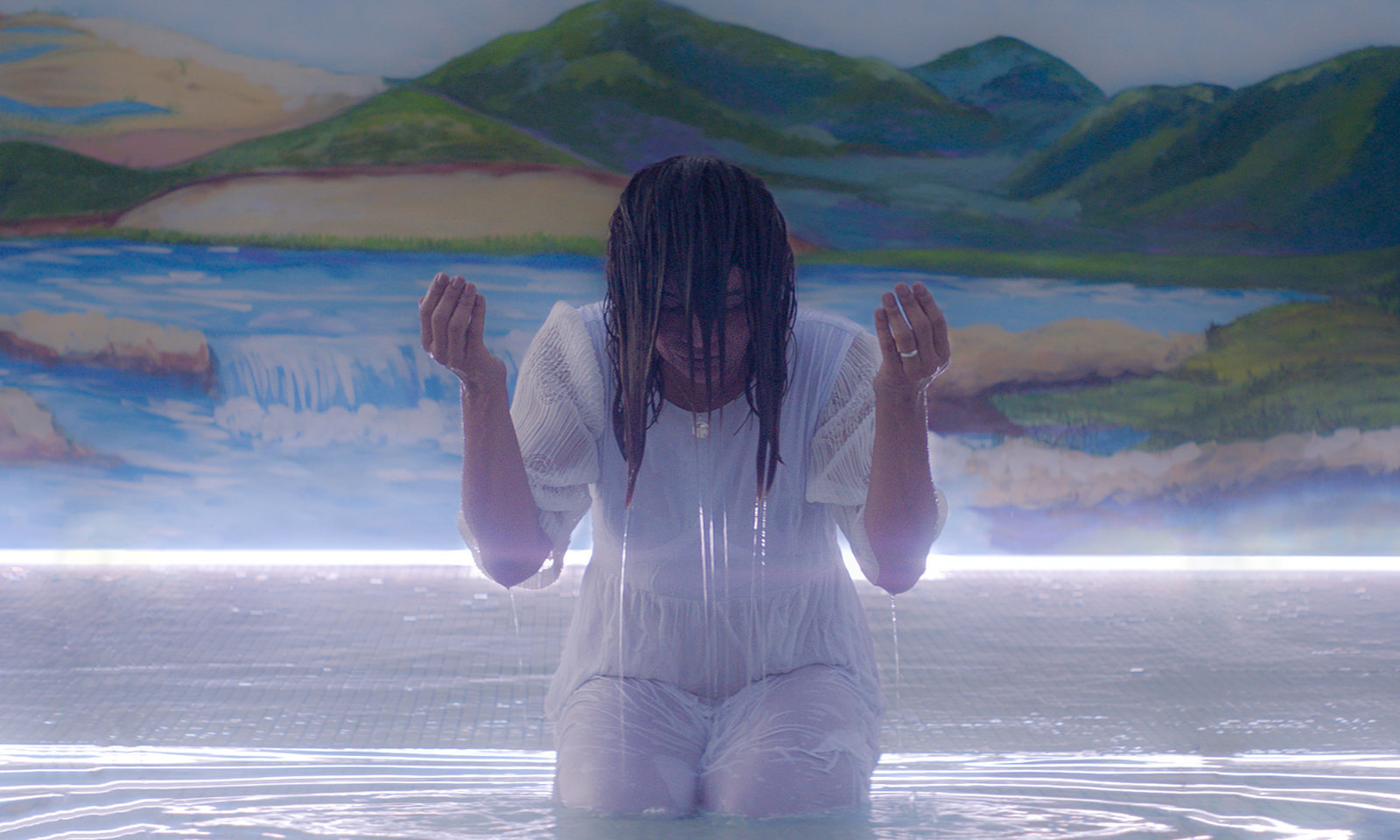
Sundance Review: ‘Divine Love’ creates a covenant between the ethereal and the erotic
Written by: Adriana Gomez-Weston, CC2K Staff Writer
The euphoria of a relationship with God is a sensation that is highly familiar. With the romance comes a sense of peace, and a deep feeling of purpose. In the beginning the bond is there, and you feel in sync with God’s Will for your life. However as life settles in, the honeymoon fades away, and you’re faced with circumstances that challenge your faith. After having one-sided conversation with God, there’s a wonder if He’s still listening. In Gabriel Mascaro’s latest feature Divine Love (Divino Amor), he finds a creative and engaging way to capture the essence of pure devotion on screen. Divine Love also creates a covenant between the ethereal and the erotic.
The film is a soft, dreamy experience, following a slightly different beat than Mascaro’s previous films (Neon Bull and August Winds). Intimacy and desire still take center stage, but religion and motherhood are set as a backdrop. A staple on the international festival circuit, Mascaro’s films have consistently garnered critical acclaim. Divine Love seems to be no different. After its Sundance debut, the film is headed for its European debut at Berlinale.
Divine Love is more than an exploration of religion, it’s an exploration of the body and a woman’s relationship to it. In the not so distant future of 2027, Brazil has undergone a moral shift. Over time, Brazil’s society becomes one that values Christ and the sanctity of marriage over all else. In this society, a child bore from marriage is the greatest thing a woman can aspire to. In this near future, Christianity is a commodity where there are drive-thru churches and sanctified raves. There are even detectors that announce a woman’s pregnancy, indicating that abortion is a thing of the past.
Dira Paes stars as Joana, a devout woman who is enamored with the sanctity of marriage. Employed at a notary office, Joana spends her days trying to prevent couples from divorcing. For those she helps, she recruits them to join her Divine Love gathering. Deeply devoted to the Divine Love, Joana is obsessed with having a child of her own. In Joana’s world a child is the most sacred thing, a symbol of the union between a husband and wife. Feeling the pressures of middle age, Joana is willing to do whatever its takes to have a child.
She engages in bizarre sexual rituals at her Divine Love gathering, has her husband undergo fertility treatment, and believes that meddling in other couple’s lives gains favor in the eyes of God. While Joana goes through her fanaticism, her husband Danilo (Julio Machado) supports her rituals because of his desire to become a father. It’s evident that Danilo sees fatherhood as a another rite of passage in his masculinity. He doesn’t necessarily go along with Joana’s beliefs because of love.
Divine Love pushes the concept of faith, and challenges viewers to think about the lengths they will go in the name of it. At first the film eludes viewers, but swiftly draws them into Joana’s plight. While the film doesn’t mock, or even condemn religion, it raises the curtain on the complications of believing. When we’re bound to God, are our sacrifices worth it in the end? As Joana’s doubts arise, she begins to question if being too devoted is a ‘sin.’ After going through everything imaginable, Joana does receive her blessing, but it comes in the most unexpected way.
Dira Paes is electric in her performance, and carries the entirety of the film. She infuses her own personal experiences into her role, and creates a quietly strong heroine. As the film progresses, audiences are invited into her personal struggles. As the film concludes, it leaves a lingering debate about faith, motherhood, and sexuality. Not only that, but Divine Love gives some serious food for thought: A woman’s existence is more than a sum her beginnings, and a child is a blessing no matter where they came from.
